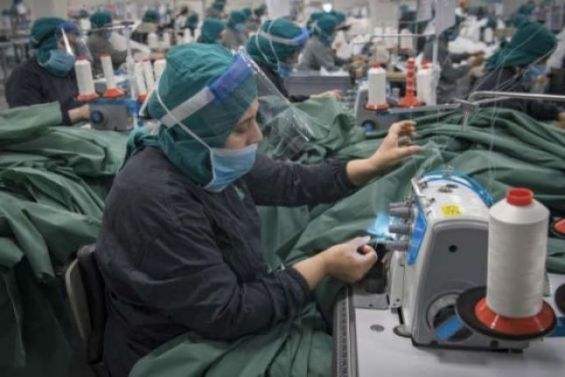Six months after the World Health Organization declared Covid-19 a global pandemic, Moroccan companies are still struggling to properly relaunch their activities. While some have managed to do well for themselves, others are just waiting for better days.
«The health crisis has affected all companies, regardless of their size and sector. There are sectors less impacted than others, but overall, the majority of businesses have been hit hard by the crisis», Studies and Communication director at Inforisk Amine Diouri said on Tuesday.
«Obviously, the most affected ones are hotels, restaurants, car rental companies, and travel agencies. The drop in revenue for these businesses is estimated to be up to between 50 and 60%», he added.
Citing an Inforisk study, Diouri announced that this year is expected to be marked by a drop in consolidated turnover of 412 billion dirhams compared to 2019 for the 66,000 Moroccan companies that pay income taxes. Furthermore, Amine Diouri referred to another observation, which is the lengthening of payment terms.
«We started with prolonged deadlines before the crisis : 202 days for very small businesses and 113 for SMEs. The crisis has accentuated these payment delays, that is to say that 50 to 60 days have been added to the initial delays. Now, MSMEs are strangled by this, especially as they have more difficulties in collecting debts, which adds on everything».
As for business failures, he said that according to estimates, «the increase can reach 15% by the end of the year, with a peak at the end of the first quarter of 2021».
On its own, the Finance Law «cannot solve everything»
On the other hand, Moroccan economist Mehdi Fakir recalls that «the challenges facing companies today are linked to two main effects». Some of them are related to cyclical difficulties but many others are of a structural nature.
«Some sectors that depend on domestic demand should not logically be affected. However, when confidence disappears or when there is a problem with visibility, it becomes a mess. It is cultural, when there is little to no visibility people tend to spend less, not pay bills and hence not contribute to the economy, taking advantage of the crisis and its effects», he argued.
As for the structural matters, the expert believes that «the Moroccan economy is structurally dependent on agriculture» and that «therefore, a year of drought is de facto a year of crisis».
Regarding problems of cash flow and payment delays, Fakir believes that it is not a new problem.
Mehdi Fakir indicates that «counting on the 2021 finance law to solve all these issues is impossible», because «a finance law alone cannot solve everything».
«This law could provide solutions to restore confidence and preserve the productive sectors and de facto employment and domestic consumption to save the national economy. But to initiate reforms, I think it is impossible because the margin is reduced and we will go into debt».
Finance and support
Amine Diouri believes that «expectations have been high for companies since the end of June, only Damane Relance TPE has been offered, with specific sector plans, in tourism and since yesterday for specific sectors». «We must relaunch the economy and this is what we expect from the next 2021 Finance Law : to propose measures that make it possible to revive and improve the business climate», he argued.
He referred to «strong measures which are not necessarily expensive», citing in this regard the proposal of «non-deductibility of VAT for factoring, with deadlines exceeding 120 days» and which «will not be expensive to the State».
Mehdi Fakir, for his part, insists on the role of support. «Funding solutions are good, as long as they are in the interest of companies», he insisted.
«Businesses today need money to spend it, but they need support. The kind of support related to adaptation and good management. We are managing the exception with the rule».
He also urged abandoning «mechanical reasoning, to go into the substance and find new schemes and ideas», pleading for solutions, such as «public private partnership» in order to «allow the State to optimize its budget and allocate more money to something else and will allow private structures to contribute to the socioeconomic development of Morocco».





 chargement...
chargement...













